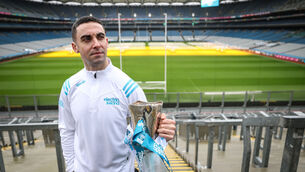O’Neill: GAA will resist paying for grant scheme
Junior Sports Minister Michael Ring admitted recently that some form of cut to the scheme currently valued at just over €1m will be announced in next week’s budget.
He said he was still prepared to “do a deal” with the GAA but conceded it was a hard sell to his Government colleagues and he couldn’t give any guarantees about its future.














